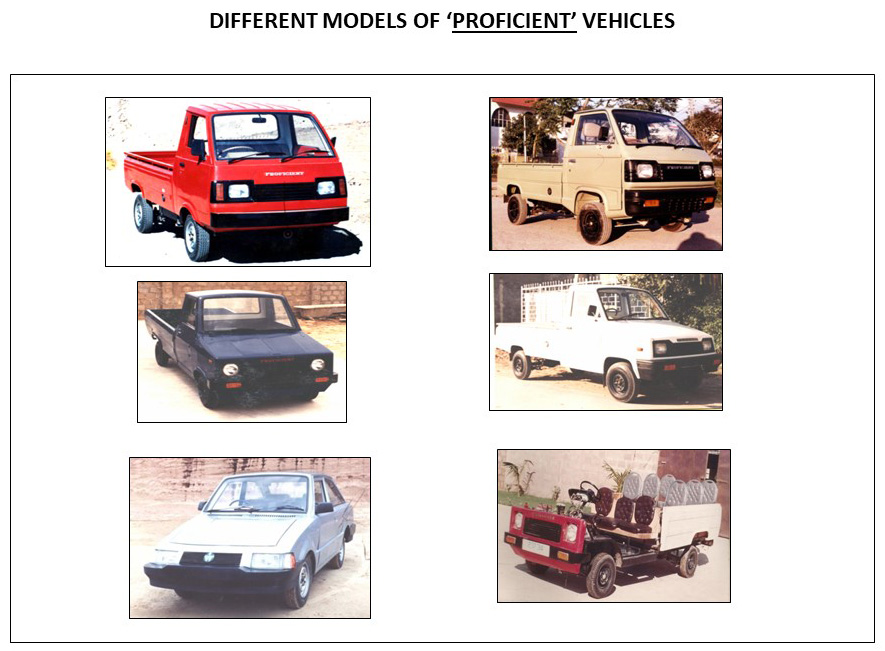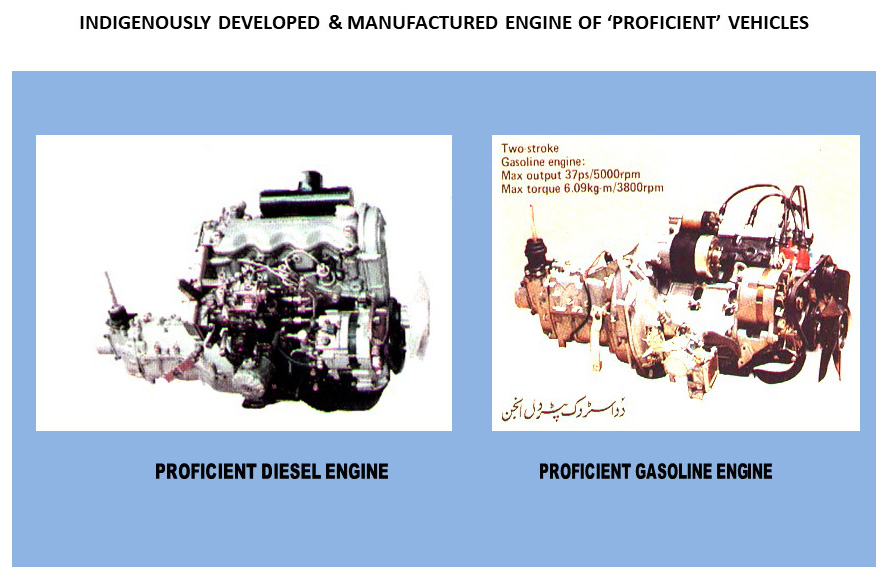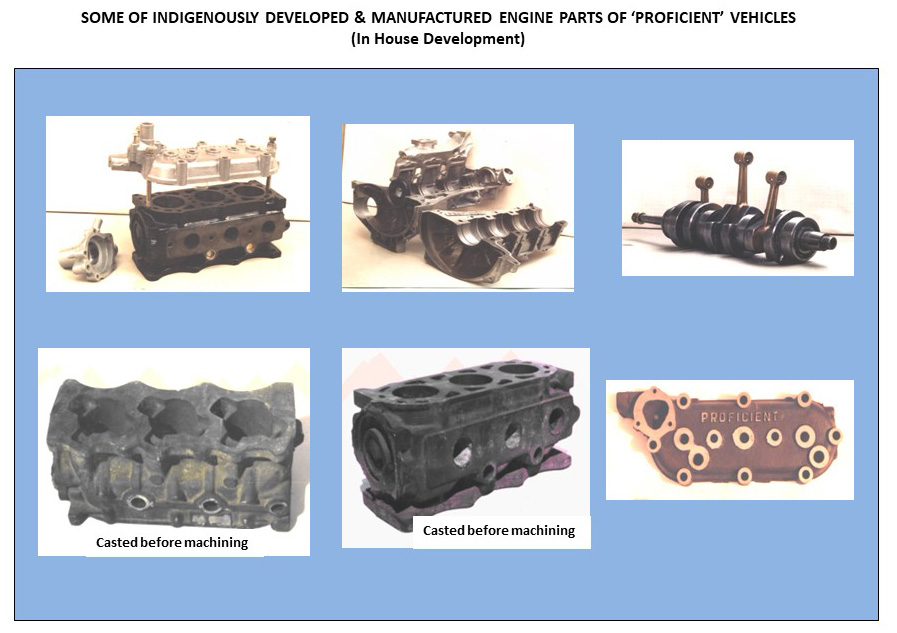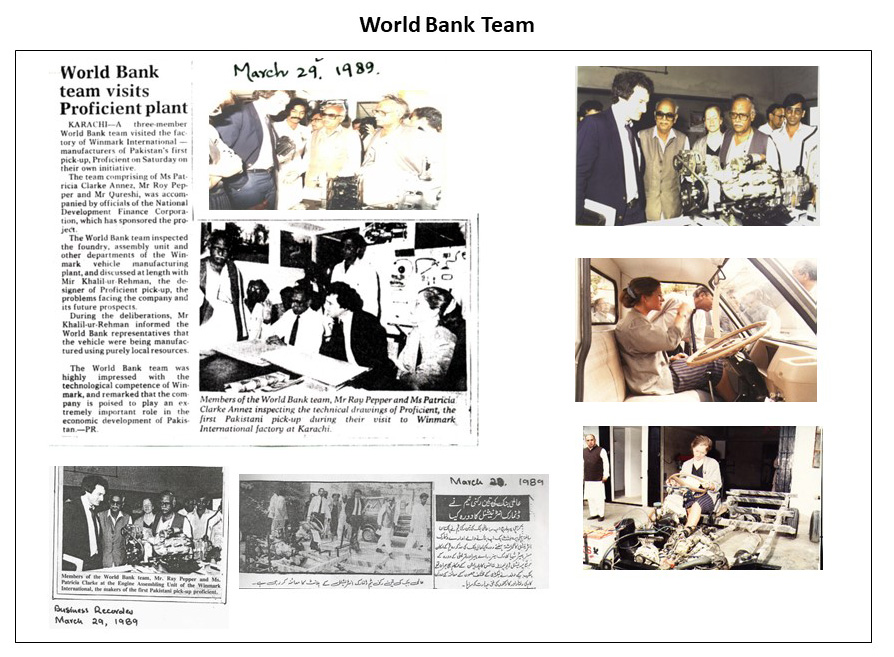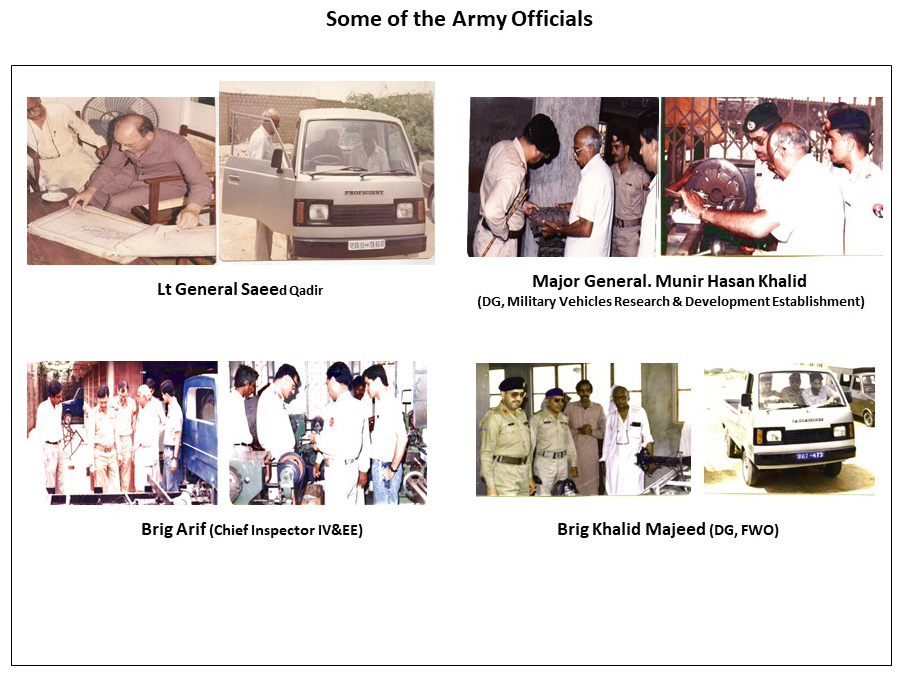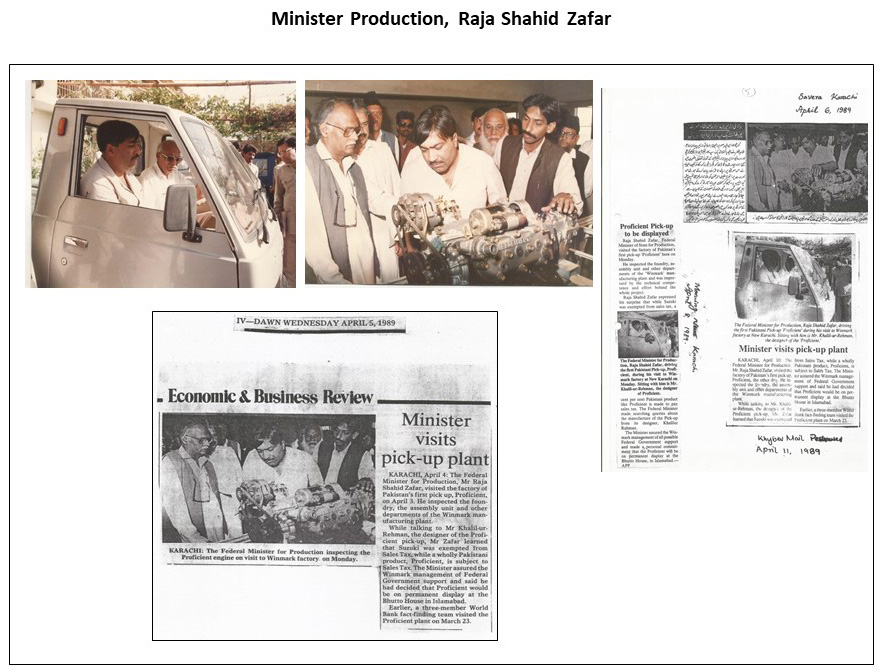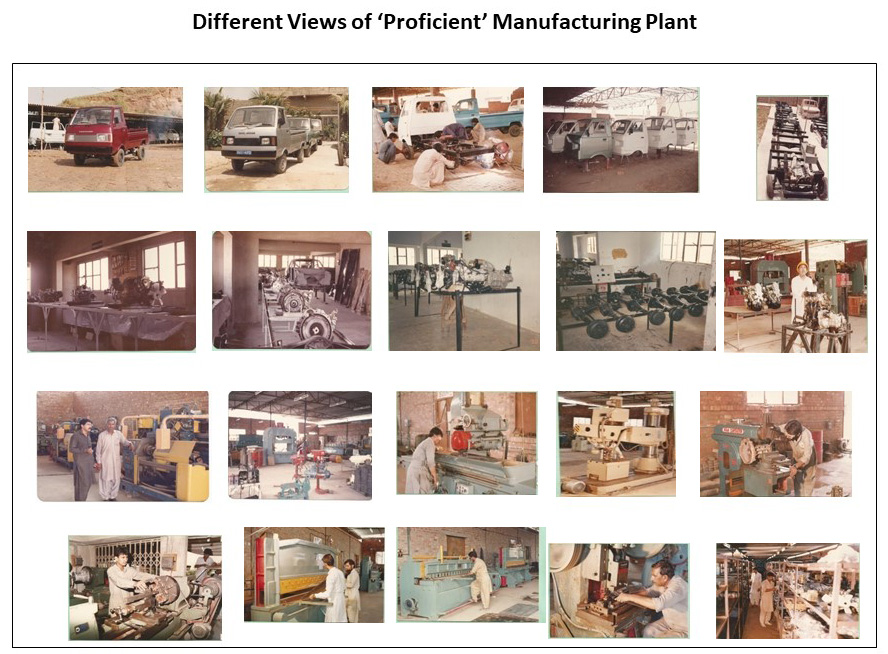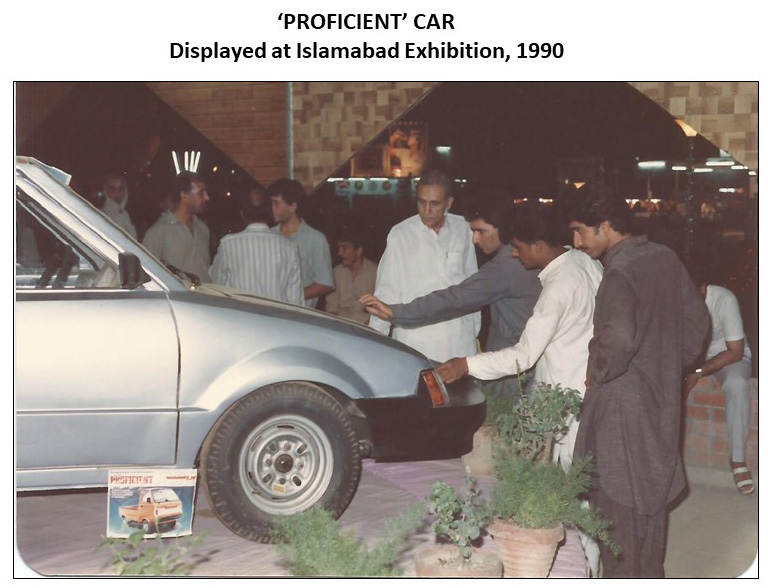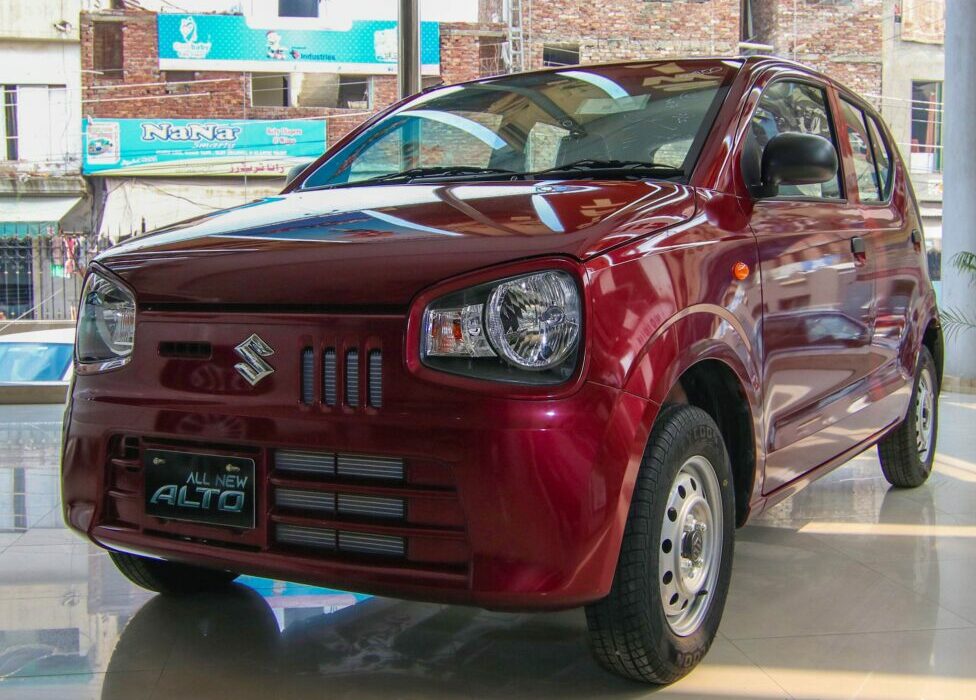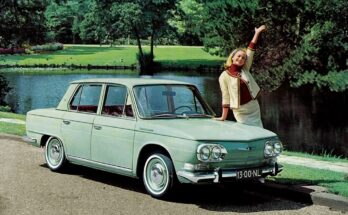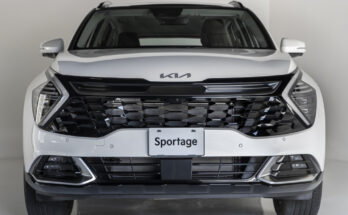Generation of today might not have heard of the Proficient pickup. It was developed during the mid-1980s, by a local engineer Mr. Khalil ur Rahman (late) and was Pakistan’s very first locally produced 1,000cc pickup. Proficient trucks were as good as most of the foreign brands and were cheaper as well. It competed in the small pickup and medium truck market, primarily against the Suzuki.
However, the Proficient project suffered badly due to bureaucratic hurdles and lack of support from the government, which then introduced an untimely policy of concessionary rate on CBU imports of Suzuki pickups (known as ‘Ravi’ today), same capacity as the locally conceived Proficient.
Related: Suzuki Swift Special Edition Launched in India at INR 4.99 lac
I still remember Proficient pickups back in my school days, when we visited their dealership which was located behind Rabi Center, Tariq Road, Karachi. We envied the Pakistan made pickups a lot but were unaware that their fate was not bright enough. The government policy hurt the local project very badly, and the decision makers back then opted for the Suzuki CBU imports rather than supporting a homegrown brand.
Recently, Herald posted the original article on their blog that was published in the Herald’s April 1989 printed issue. Its saddening to go through the piece below only to know that our shortsightedness that prefer personal benefits over national interest, has hurt us in more ways one can imagine. If only the company would have been provided the required support, it could have been the window for self dependency but fast forward 2018, we are still dependent on the same 40 year old Suzuki pickups that we buy against nearly PKR 940,000 today.
Proficient Versus Suzuki: Pakistan’s First Locally Produced Automobile
The problems faced by the manufacturers of the Proficient, the country’s first locally produced automobile, are typical of those faced by other entrepreneurs in Pakistan — proving yet again that a bureaucracy committed to red tape-ism and inefficiency is the biggest deterrent to industrial growth and self sufficiency
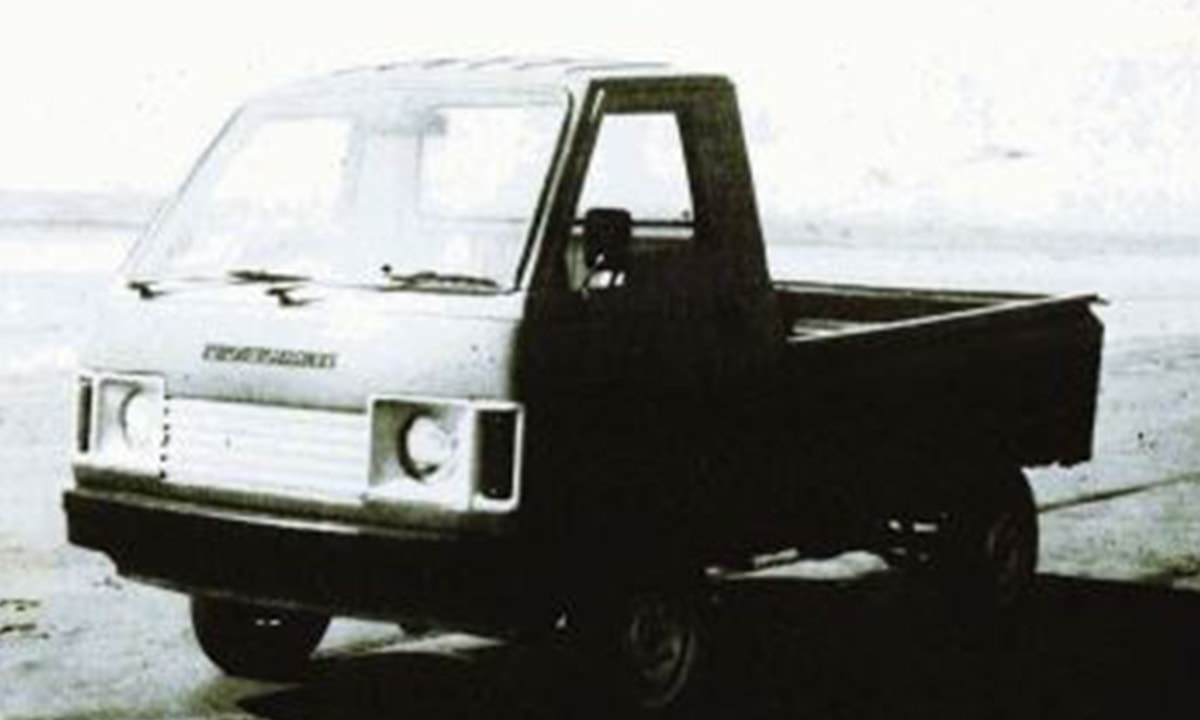
From a distance the pickup looks like any one of the many Suzukis that ply the roads of Karachi. A closer inspection indicates that the headlights and front grill are slightly different. It is only after the proud manufacturer lifts up the front seat to reveal the engine hidden beneath, that disbelief turns to awe at the boldly lettered ‘Proficient’ that proclaims the vehicle’s name. Despite a number of advertisements in the press, very few people actually realize that this vehicle has been manufactured entirely in Pakistan.
Related: Pak Suzuki Ciaz vs Maruti Ciaz
Speaking from his Winmark Industries office in PECHS, however, the manufacturer of this vehicle, Mr KhaliIur Rehman, sounds a little unenthusiastic about showing visitors around his factory in the remote North Karachi industrial area. He keeps saying that most people are quite taken aback when they see the primitive setup in which the automobile is manufactured. Indeed, after a grueling journey through city traffic and the narrow lanes of the katchi abadis, the factory is stilI a quarter of a miIe away, without even a dirt track leading up to its entrance.
The factory is a two thousand yard plot with a boundary wall and a three storeyed, unpainted brick structure in the middle. The front courtyard could easily be any one of a thousand denting and painting shops that litter the city. A chassis is cut and welded in one corner, while the shape of the driver’s cabin is hammered out in another. All the moving and lifting is done manually, and the rest of the work is also accomplished without the use of any tools that are more sophisticated than a blow-torch.
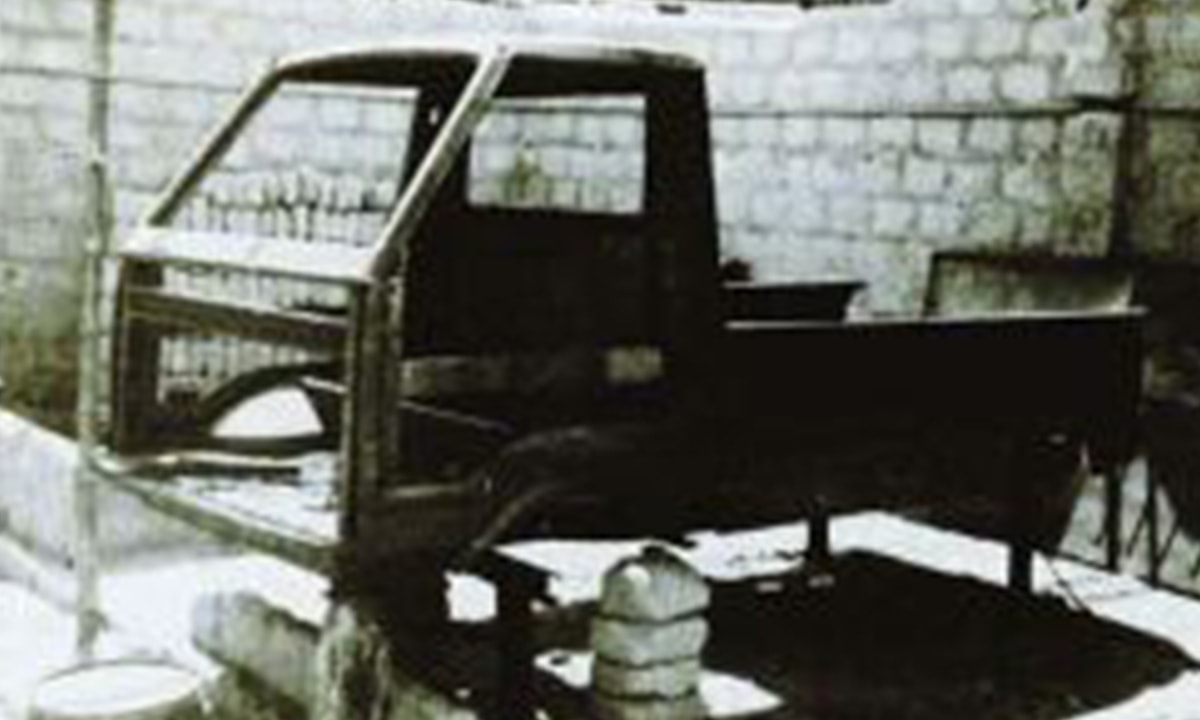
The entire project seems to have been designed with the sole intention of disproving the belief that modern automobiles cannot be manufactured without sophisticated heavy machinery imported from abroad. The inventor’s biggest triumph, indeed, is the process by which the engine-block and gearbox are manufactured. Ordinary clay is first used to make an outer mould for the engine block, and then a tandoor-like oven is used to cast the molten alloy into the required shape. The rough surfaces are then ground and finished to precise tolerance levels using domestically manufactured lathe machines.
Everything, from hand-break levers to seat cushions, is made by hand, and traditional methods are used to manufacture the product from scratch.
Related: Comparison: Maruti Celerio vs Pak Suzuki Cultus
Obviously, the entire project is quite labour intensive. A few cautious inquiries, however, disclose some of the problems that confront this venture. Though the intrepid owner has succeeded in obtaining some running finance from the National Development Finance Corporation, he still faces an uphill task in trying to convince other government agencies of the feasibility of his project.
The government refused the facilitation of basic amenities such as electricity, water and telephones to the Proficient factory
The dilemma in which these manufacturers have found themselves, is typical of the bureaucratic maze in which most local projects flounder. In order to exhibit the feasibility of the project, assistance is required from various government agencies, ranging from the facilitation of basic amenities such as electricity, water and telephones, to export licenses and immunity from sales tax. However, the same concerned agencies are unwilling to grant most of these facilities untiI they are convinced of the project’s viability
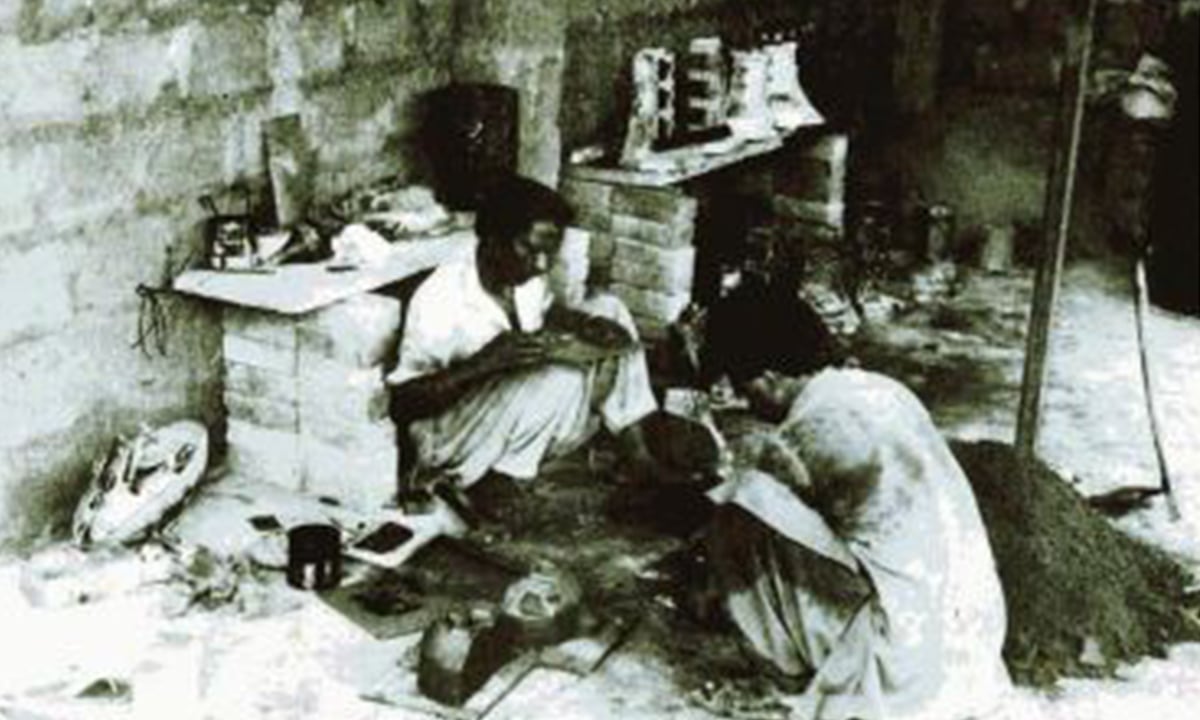
The Winmark company’s attempt to obtain government sanctions provides material for a fascinating case-study of the way in which various government departments seem to unite in order to frustrate constructive efforts at any level. The paper trail branches out to include almost every department that is even remotely concerned with such investment projects.
Related: If You Were a Policy Maker at Pak Suzuki?
To start with, the factory has not been given an electricity connection even though the surrounding area seems to be completely electrified. The telephone department has sent them a letter saying that they are unable to extend a line to the factory, but all it took was a glance outside the window to ascertain that the mill next door has two telephone lines, while the army camp that is just a few hundred yards away also has its own telephone hookup. Needless to say, like almost half of the city, this area too, has no water supply.
In spite of import duties and taxes that have been paid, the Proficient is still available at three quarters of the price of a Suzuki even though the latter is totally exempt from all duties and taxation.
The lack of these basic necessities for industrial development, though, is just the tip of the proverbial iceberg. After years of spouting catch phrases such as ‘one hundred percent deletion’ and ‘ultimate autarky through technology transfer,’ the local , bureaucracy is fast running out of excuses behind which it can hide its preference for projects that entail foreign collaboration. As the disgruntled owners put it:
“The Suzuki company can buy the entire government with just one day’s earnings.” Since there is no doubt that the Proficient pickup is going to compete in the same market as the Suzuki Carry, they argue, all the arsenal at the government’s disposal is being utilized to try and scuttle this project, or to at least render it noncompetitive.”
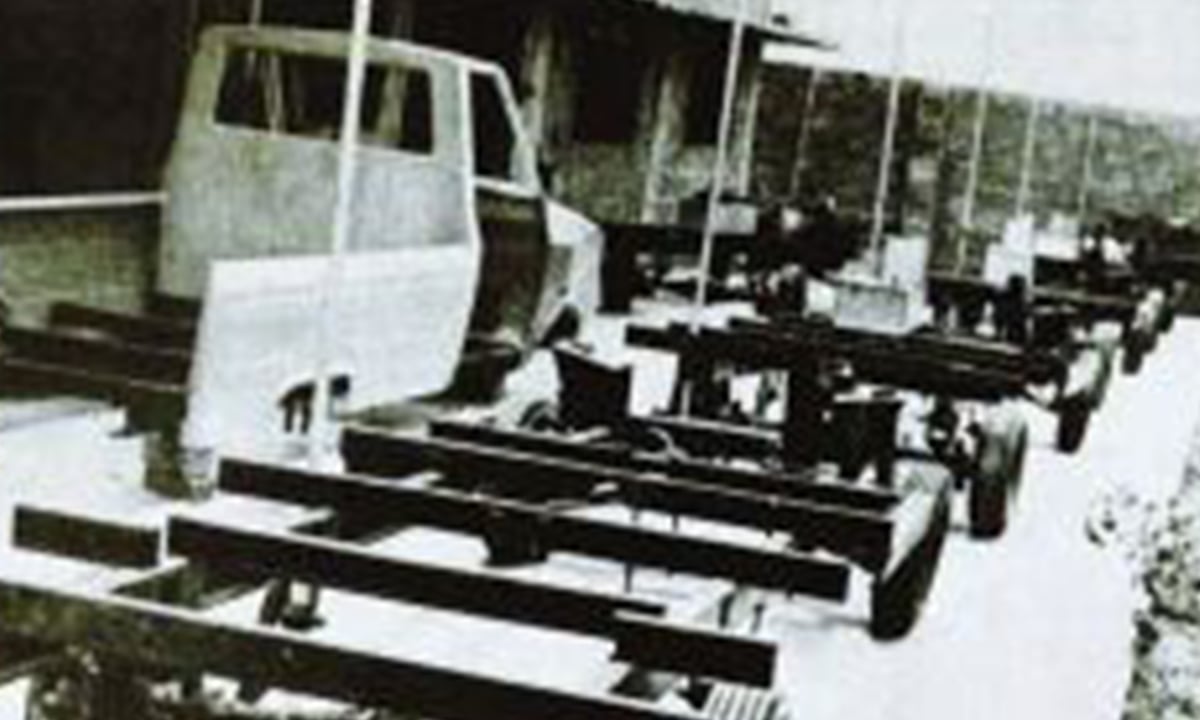
An official gazette notification, for instance, exempts the Suzuki pickups, or any other locally manufactured load bearing vehicle, from the levying of a sales tax. Even though the Proficient pickup appeared to meet all the requirements set out in the gazette, Winmark were given a show cause notice by the Collector of Central Excise and Land Customs, Karachi, for non-payment of sales tax and asked to pay a fine of Rs. 33,375 when they asked for immunity from sales tax under existing regulations.
Experts at the Institute of Engineers and Technicians in England, declared the Proficient sound by all standards.
Mr Rehman argues that “since we buy all those parts that we do not manufacture ourselves on the open market, we first have to pay sales tax on the purchase of the parts and then on the sale of the vehicle.” It is quite surprising how, in spite of import duties and taxes that have been paid, the Proficient is still available at three quarters of the price of a Suzuki even though the latter is totally exempt from all duties and taxation.
Related: The INR 5.4 lac Maruti Wagon R vs PKR 10.94 lac Pak Suzuki Wagon R
Certainly, the government’s non-cooperative attitude appeared even more pronounced when Winmark was refused certification for its vehicle on the grounds that it had not been inspected for compliance with safety standards, a fact that prompted the discouraged but undaunted manufacturers to get their pickup tested by experts at the Institute of Engineers and Technicians in England, who declared the vehicle sound by all standards.
Winmark’s request for permission to manufacture a family sedan equipped with a 1000cc engine was rejected by the concerned authorities.
Despite this vindication, Winmark grimly conceded that the battle with the bureaucratic juggernaut was far from over. Numerous official memorandums that doubt the company’s ability to manufacture the vehicle, even though the first pickup was rolled out two years ago, continue to circulate like red tape among concerned officials. Similarly, inquiries for the export of the vehicle to Bangladesh and the Gulf, which were referred to the proper government departments, have also been shelved for one reason or another.
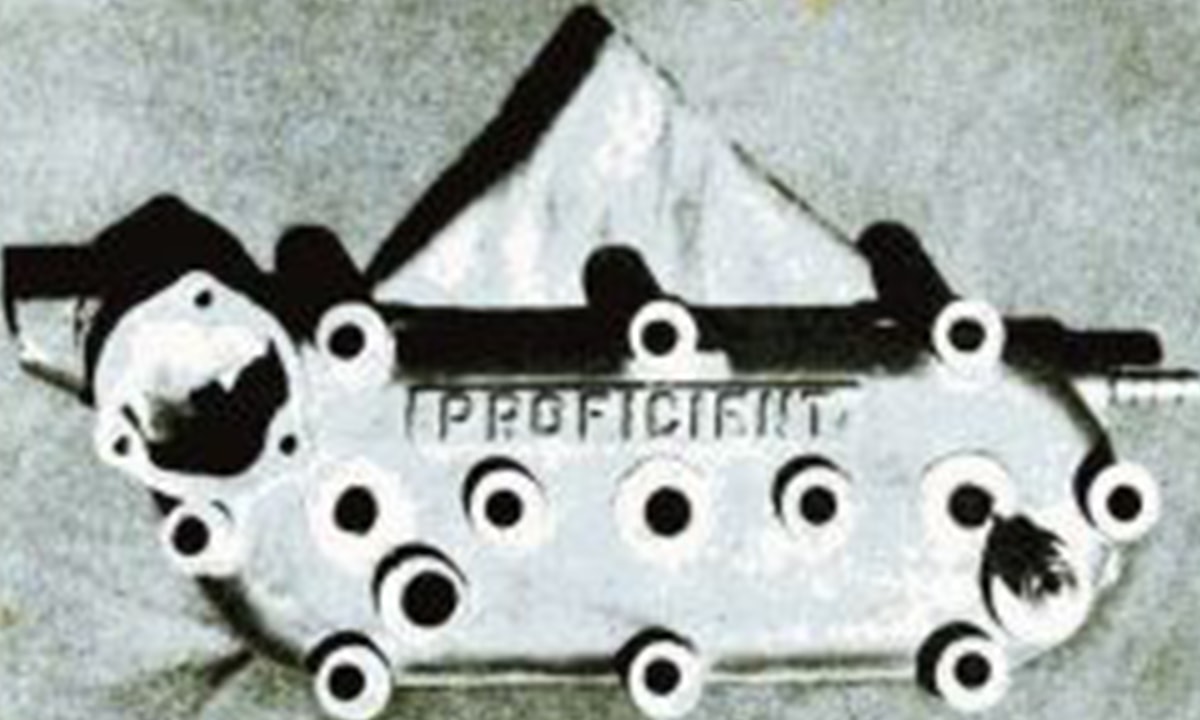
A case in point, once again, is the way in which Winmark’s request for permission to manufacture a family sedan equipped with a 1000cc engine was rejected by the concerned authorities. The rejection came as no surprise to the applicants, who claim that it was obviously linked to the Suzuki plant’s latest project of manufacturing the 1000cc Suzuki Swift. What did come as a surprise though, was the communication that permission might be granted for a 1300cc car, but only if the request , complete with all necessary supporting documentation, was filed within four days of receipt of the notice. The final line of the letter communicated, that in case Winmark failed to respond within the stipulated time limit, the department would assume that they were not interested in the matter anymore.
Rs 90 billion are being sent abroad each year on just the Suzuki project alone, and the figure is much higher if you take into account the automobile industry and its service related sector.
Commenting on the series of hurdles that he has had to confront, Mr Khalilur Rehman says, “I am even prepared to bribe government officials if that is what is needed to get this project the attention and support it deserves.” He points out that Rs 90 billion are being sent abroad each year on just the Suzuki project alone, and the figure is much higher if you take into account the automobile industry and its service related sector.
Related: Everything Wrong with the Suzuki Mega Carry “Extra”
But perhaps it is because this project is completely indigenous in every respect, that everyone is reluctant to support it. No commercial bank would be interested in providing a straight loan unless it also stood to gain money on transactions such as the opening of letters of credit, foreign exchange transfers and the issuance of international bank guarantees. Therefore, manufacturers like Mr. Khalilur Rahman are actually at a disadvantage when it comes to asking banks for financial support because their projects do not require importing expensive equipment and the various financial transactions that accompany such a process.
Proficient TVC that was aired during 1980s
The problems faced by Winmark and other Pakistani entrepreneurs can only be solved if there is a change in the outlook of the concerned authorities. It is impossible to expect local initiative to surface if we continually give outsiders the benefits which are denied to our own citizens. The case of Winmark and its attempts to manufacture the Proficient pickup is one which serves to confirm all stereotypes regarding the bureaucracy. It also exposes the hypocrisy of those who continue to pay lip service to the ideal of a strong and independent Pakistani economy, free from the dictates of various western donor agencies as well as the industrial domination of the Far East.
This article was published in the Herald’s April 1989 issue and was published on Herald blog on 2nd of October 2018. All information and images are property of Herald/ Dawn.

A computer animation professional with over 23 years of industry experience having served in leading organizations, TV channels & production facilities in Pakistan. An avid car enthusiast and petrolhead with an affection to deliver quality content to help shape opinions. Formerly written for PakWheels as well as major publications including Dawn. Founder of CarSpiritPK.com

